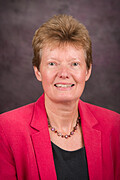This call is one in a series featuring the Superfund Research Program
Urban agriculture continues to thrive, with a million or more households participating in community gardens in cities around the world. Millions more people are growing vegetables and fruits in their own urban backyards. Community gardens provide people with opportunities to grow nutritious and affordable fresh foods, enhance community building and increase productive use of abandoned land. The soil in these gardens is frequently contaminated with toxic substances such as arsenic (As), lead (Pb) and polycyclic aromatic hydrocarbons (PAHs) from decades of anthropogenic activities. In an effort to leverage the benefits of consuming and growing local food, urban gardeners need to understand and minimize risks posed by exposure to contaminated soils. Experts on this call reviewed best practices for locally-grown food initiatives, including measuring soil health, how to replace contaminated soils, how to compost safely, which plants take up what toxicants, and alternative growing methods. Communication of findings and use of the findings for decision-making purposes by gardeners, gardening organizations, health departments and regulatory authorities were also addressed.
Featured Speakers
 Dr. Wendy Heiger-Bernays is an associate professor in the Department of Environmental Health at the Boston University School of Public Health. Her work reflects her education in molecular toxicology and her professional experience in regulatory toxicology and risk assessment. Her interests center on understanding how environmental hazards adversely affect people’s health and how risks associated with these exposures can be quantified, communicated and decreased. In her role on the Research Translation Core of the Boston University Superfund Research Program, she works with the scientific projects leads and regulatory, environmental and health organizations to use the science to inform policy and practice. She collaborates with other researchers to understand patterns of migration of contaminants in municipal compost and soils in urban gardens and risks associated with these agents, with the objective of translating this research into cost-effective best practices.
Dr. Wendy Heiger-Bernays is an associate professor in the Department of Environmental Health at the Boston University School of Public Health. Her work reflects her education in molecular toxicology and her professional experience in regulatory toxicology and risk assessment. Her interests center on understanding how environmental hazards adversely affect people’s health and how risks associated with these exposures can be quantified, communicated and decreased. In her role on the Research Translation Core of the Boston University Superfund Research Program, she works with the scientific projects leads and regulatory, environmental and health organizations to use the science to inform policy and practice. She collaborates with other researchers to understand patterns of migration of contaminants in municipal compost and soils in urban gardens and risks associated with these agents, with the objective of translating this research into cost-effective best practices.
 Dr. Monica Ramirez-Andreotta, Assistant Professor of Health Sciences at Northeastern University, has a PhD in Soil, Water and Environmental Science from the University of Arizona (UA) that focused on integrating the fundamentals of environmental science, human exposure assessment, and developing methods for environmental health justice. She also has a Masters of Public Administration in Environmental Science and Policy from Columbia University, and her undergraduate degrees are in Ecology & Evolutionary Biology and Photography. Her dissertation was entitled: “Designing a Comprehensive, Integrated Approach for Environmental Research Translation: The Gardenroots Project to Empower Communities Neighboring Contamination”, where she conducted a controlled greenhouse study in parallel with a co-created citizen science program to characterize the uptake of arsenic by homegrown vegetables near a Superfund site in Arizona. To complete her doctoral degree, Monica received a: SRP Training Fellowship, UA Diversity Fellowship, NASA Space Grant Graduate Fellowship, National Action Council for Minorities in Engineering Scholarship, and was a UA Water Sustainability Program Graduate Fellow. Recently, she was named the 14th recipient of the National Institute of Environmental Health Sciences’ Karen Wetterhahn Memorial Award.
Dr. Monica Ramirez-Andreotta, Assistant Professor of Health Sciences at Northeastern University, has a PhD in Soil, Water and Environmental Science from the University of Arizona (UA) that focused on integrating the fundamentals of environmental science, human exposure assessment, and developing methods for environmental health justice. She also has a Masters of Public Administration in Environmental Science and Policy from Columbia University, and her undergraduate degrees are in Ecology & Evolutionary Biology and Photography. Her dissertation was entitled: “Designing a Comprehensive, Integrated Approach for Environmental Research Translation: The Gardenroots Project to Empower Communities Neighboring Contamination”, where she conducted a controlled greenhouse study in parallel with a co-created citizen science program to characterize the uptake of arsenic by homegrown vegetables near a Superfund site in Arizona. To complete her doctoral degree, Monica received a: SRP Training Fellowship, UA Diversity Fellowship, NASA Space Grant Graduate Fellowship, National Action Council for Minorities in Engineering Scholarship, and was a UA Water Sustainability Program Graduate Fellow. Recently, she was named the 14th recipient of the National Institute of Environmental Health Sciences’ Karen Wetterhahn Memorial Award.
 Dr. Sabine Martin is currently a Program Associate with the Department of Agronomy at Kansas State University and a Principal Investigators on an EPA grant dealing with contaminant uptake by food crops grown in community gardens located on brownfields sites. She also is the owner and president of CTOR Solutions, a company providing guidance and assistance to communities dealing with brownfields redevelopment issues. From 2002 to 2012, Dr. Martin was the Coordinator of the Technical Assistance to Brownfields (TAB) communities program at the Center for Hazardous Substance Research at Kansas State University, assisting communities in EPA Regions 5 and 7, a 10 state area, with brownfields revitalization issues. Before joining the Center for Hazardous Substance Research in 2002, Dr. Martin worked as a consultant in the environmental industry. Dr. Martin earned a Masters degree in geology and a Ph.D. in hydrogeology from Justus-Liebig-University in Germany.
Dr. Sabine Martin is currently a Program Associate with the Department of Agronomy at Kansas State University and a Principal Investigators on an EPA grant dealing with contaminant uptake by food crops grown in community gardens located on brownfields sites. She also is the owner and president of CTOR Solutions, a company providing guidance and assistance to communities dealing with brownfields redevelopment issues. From 2002 to 2012, Dr. Martin was the Coordinator of the Technical Assistance to Brownfields (TAB) communities program at the Center for Hazardous Substance Research at Kansas State University, assisting communities in EPA Regions 5 and 7, a 10 state area, with brownfields revitalization issues. Before joining the Center for Hazardous Substance Research in 2002, Dr. Martin worked as a consultant in the environmental industry. Dr. Martin earned a Masters degree in geology and a Ph.D. in hydrogeology from Justus-Liebig-University in Germany.
